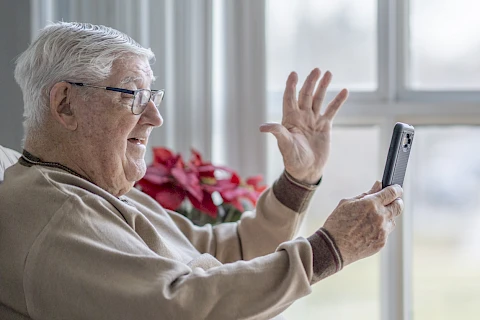
Winter can be a challenging time for seniors. The cold months often bring shorter days and less sunlight, which can impact physical and mental health. Fortunately, there are proactive steps seniors can take to maintain their well-being and stay positive during the colder months.
Stay Active Indoors
Keeping active during the winter is necessary for maintaining physical health. While it may be too chilly for outdoor walks, there are plenty of ways to stay fit indoors. Simple exercises like stretching routines or chair yoga can improve mobility and flexibility. These gentle activities can keep your body in shape and boost your mood by releasing endorphins. Just remember to consult your healthcare provider before starting any new fitness activities.
Pay Attention to Nutrition and Hydration
Maintaining a balanced diet is essential, especially during the colder months when the temptation to indulge in comfort foods is strong. Include plenty of fruits, vegetables, and lean proteins in your meals. These foods provide essential nutrients that strengthen your immune system.
Don't forget about hydration! Drinking enough water is as vital in winter as it is in summer. Cold weather can sometimes make seniors feel less thirsty, but dehydration is still a concern. Remember to drink water throughout the day. Warm teas and soups can also be a cozy way to stay hydrated in winter.
Keep Your Mind Engaged
Winter is a great time to engage in hobbies that stimulate the brain. Whether it's reading, solving puzzles, or painting, these activities can keep you mentally sharp. Learning a new skill or revisiting an old hobby can also provide a sense of accomplishment and joy. Staying mentally engaged can improve cognitive function, memory, and overall emotional well-being.
Stave Off Seasonal Affective Disorder (SAD)
Seasonal affective disorder is a type of depression that occurs at a specific time of year, usually in winter. Symptoms include feelings of sadness, lack of energy, and difficulty concentrating. Prompt recognition of these symptoms can ensure better management. Light therapy, which uses a lamp that mimics natural sunlight, can be effective. Consulting a healthcare professional for additional treatments is also a wise option.
Nurture Social Connections
Keeping in touch with family and friends can combat loneliness and isolation. In today's digital age, technology like video calls can make it easy to stay connected with loved ones, even if you can't meet in person. Whether it's a regular phone call or a virtual family game night, staying socially engaged is instrumental to maintaining emotional well-being during winter.
Practice Mindfulness and Relaxation
Stress reduction is key to emotional health, and mindfulness practices can be incredibly helpful. Techniques such as meditation and deep breathing can reduce stress and promote relaxation. Even a few minutes of focused breathing daily can make a significant difference. These practices keep stress while improving overall mental clarity.
Keep the Winter Blues at Bay With Tailored Care From Senior Helpers
Focusing on your physical, mental, and emotional well-being can keep the seasonal challenges of winter at bay, ensuring you stay healthy and happy throughout the colder season. If you need more personalized home care and support — from cheerful companionship to assistance with day-to-day self-care tasks — contact us at Senior Helpers Murrells Inlet. We're here to help seniors in Murrells Inlet, Myrtle Beach, Little River, Conway, and Georgetown thrive independently at home, no matter the season.